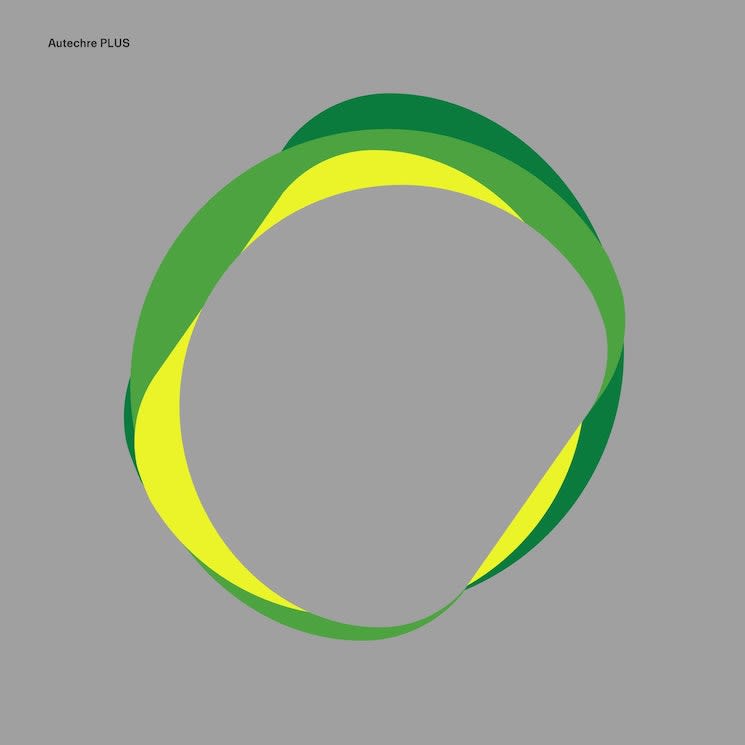There are only a select handful of electronic music artists held in the same calibre as Autechre. Since the early '90s, Rob Brown and Sean Booth have been contorting, shifting and mangling sound to wonderful, cacophonous effect. Over the years, their sound has delved further into abstraction, to the point where their eager fanbase has come to expect nothing less.
Enter SIGN — Autechre's most recent album, preceding PLUS by only two weeks. SIGN marked a definite return to the melodic tendencies and the more structured arrangements of their earliest material. Now, on PLUS, Autechre look boldly again to the future.
It must be said that none of the material on PLUS is as labyrinthine as in the most extreme moments held in any of the 8 hours of NTS Sessions 1-4, where the duo seemed to luxuriate in the inaccessibility of their own music. To the most ardent of Autechre's audience, this may come as a disappointment, but for the rest, it is a welcome refinement. The album's opener, "DekDre Scap B," is a strong statement of things to come; immediately knottier than the introduction to SIGN, the track is a kludged assortment of dissonant synthesis and collapsing rhythms that is filled with complexity.
The levitating and descending synthetics of "7FM ic" centre on a mid-tempo duo of hi-hat and kick drum to disorienting effect. In comparison, the following track, "marhide," feels practically soothing, as Autechre manipulate and develop pad sounds to build and release moments of tension throughout. Neither of the two tracks are as frantic as the opener, but they are a welcome energy shift. "ecol4" is similar in terms of tone, but is a far more restrained, hypnotic exercise that is carried by a (mostly) steady groove that undercuts the entirety of its almost 15-minute runtime. If Autechre's music could ever be described as progressive, this would be a prime example.
In stark contrast to everything else on PLUS, "lux 106 mod" is unabashedly emotive. Lush arpeggiation and innovative modal inflections resolve satisfyingly before the frantic "X4," in which warped, acidic basslines scaffold in unpredictable ways, almost alluding to the electro found on labels like CPU Recordings. "ii.pre esc" is a celestial affair that leads nicely into "else 0" — a similarly euphoric composition that ultimately shudders to ringing halt. The album ends with "TM1 open" — a track approaching the realms of acid techno. Echoic strings and a Moog-like staccato bassline make for a peculiar mix that ultimately proves strangely cohesive.
PLUS is certainly a stronger example of Autechre's range than SIGN. This does come at a cost, where the cohesion of their previous album is somewhat lost on this most recent one; this is especially telling in the latter half of the album, where the programming becomes somewhat disjointed. Nevertheless, any Autechre project is worth praise solely due to the duo's consistent aural innovation. New music from them is always a treat by any measure and given their prolific streak, it likely won't be long until we hear more.
(Warp)Enter SIGN — Autechre's most recent album, preceding PLUS by only two weeks. SIGN marked a definite return to the melodic tendencies and the more structured arrangements of their earliest material. Now, on PLUS, Autechre look boldly again to the future.
It must be said that none of the material on PLUS is as labyrinthine as in the most extreme moments held in any of the 8 hours of NTS Sessions 1-4, where the duo seemed to luxuriate in the inaccessibility of their own music. To the most ardent of Autechre's audience, this may come as a disappointment, but for the rest, it is a welcome refinement. The album's opener, "DekDre Scap B," is a strong statement of things to come; immediately knottier than the introduction to SIGN, the track is a kludged assortment of dissonant synthesis and collapsing rhythms that is filled with complexity.
The levitating and descending synthetics of "7FM ic" centre on a mid-tempo duo of hi-hat and kick drum to disorienting effect. In comparison, the following track, "marhide," feels practically soothing, as Autechre manipulate and develop pad sounds to build and release moments of tension throughout. Neither of the two tracks are as frantic as the opener, but they are a welcome energy shift. "ecol4" is similar in terms of tone, but is a far more restrained, hypnotic exercise that is carried by a (mostly) steady groove that undercuts the entirety of its almost 15-minute runtime. If Autechre's music could ever be described as progressive, this would be a prime example.
In stark contrast to everything else on PLUS, "lux 106 mod" is unabashedly emotive. Lush arpeggiation and innovative modal inflections resolve satisfyingly before the frantic "X4," in which warped, acidic basslines scaffold in unpredictable ways, almost alluding to the electro found on labels like CPU Recordings. "ii.pre esc" is a celestial affair that leads nicely into "else 0" — a similarly euphoric composition that ultimately shudders to ringing halt. The album ends with "TM1 open" — a track approaching the realms of acid techno. Echoic strings and a Moog-like staccato bassline make for a peculiar mix that ultimately proves strangely cohesive.
PLUS is certainly a stronger example of Autechre's range than SIGN. This does come at a cost, where the cohesion of their previous album is somewhat lost on this most recent one; this is especially telling in the latter half of the album, where the programming becomes somewhat disjointed. Nevertheless, any Autechre project is worth praise solely due to the duo's consistent aural innovation. New music from them is always a treat by any measure and given their prolific streak, it likely won't be long until we hear more.
